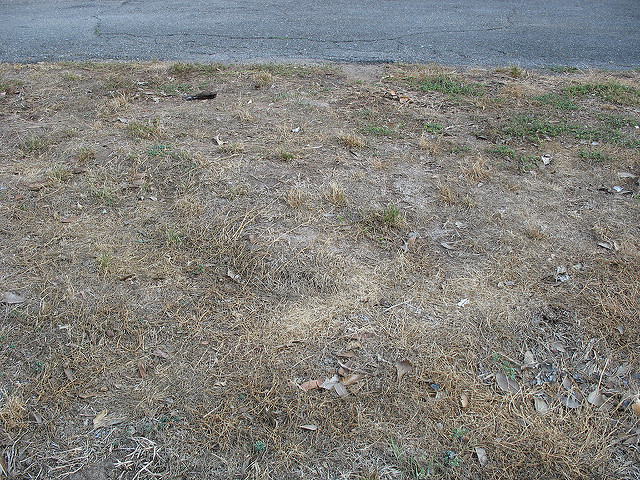
My neighbor Geraldine
runs her sprinkler
like a public fountain.
The kids run through hollering
when all that dead grass
stabs their little plum feet,
but their feet don’t seem
to mind. Meanwhile,
death cowers in me
like a dog with heat stroke,
huffing in shade to cool
its body—as if humidity
doesn’t lurk under the porch,
where critters cuddle up
close with lost toys
and buried bones. Within
summer is another
—one dryer, lonelier.
I pour buckets of water
on the plants. No growth.
I pour buckets of water
on the grass. Only weeds.
My water glass distorts
a mosquito, but I look
anyway, then fling a stream
across the porch
and onto the ground.
The water runs in its rivulets,
a formless body always
seeking. Left alone, it
will explore the earth
until evaporation. If lucky,
it fills a noble shape
like the prickly pear,
whose name in Arabic
means patience or tenacity.
Of course, we agree that water
is incapable of reasoning.
Why, then, does it seek?
Kerry James Evans is the author of Bangalore (Copper Canyon).
Photo by Freestone Wilson




